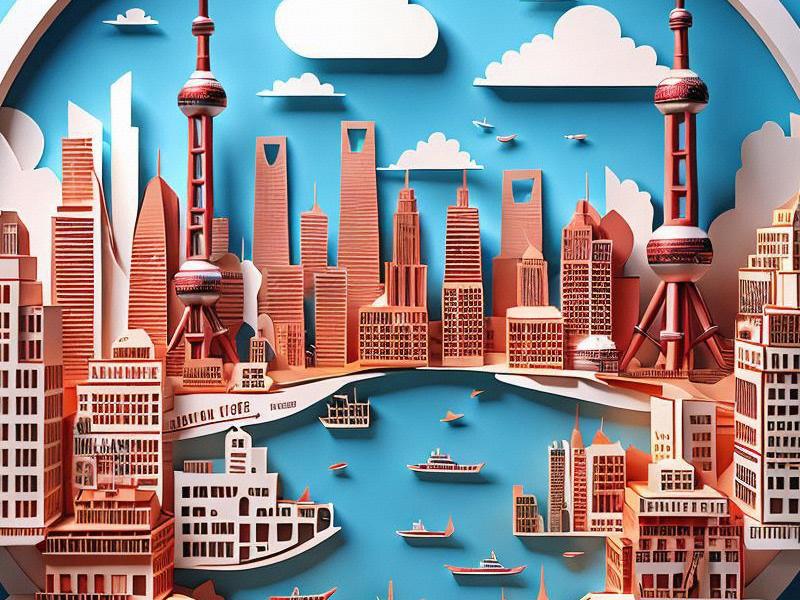
Nestled along the banks of the Huangpu River, Shanghai stands as a testament to China's rapid urbanization and economic rise. Once a modest fishing village, the city has evolved into a global powerhouse, renowned for its stunning skyline, vibrant culture, and historical significance. Shanghai's renaissance is not just a story of architectural and economic growth but also a narrative of preserving the past while embracing the future.
The city's transformation began in earnest during the late 19th century when it was opened up to foreign trade as one of the treaty ports under the unequal treaties imposed by Western powers. This period saw the establishment of the International Settlement and the French Concession, which brought a mix of architectural styles and cultural influences that still define the city today.
One of the most iconic symbols of Shanghai's modernity is the Pudong district. Once a rural area across the Huangpu River from the historic Bund, Pudong has been transformed into a futuristic skyline of skyscrapers, including the iconic Oriental Pearl Tower, the Jin Mao Tower, and the Shanghai Tower, which is currently the tallest building in China and the second-tallest in the world. The Lujiazui financial district is home to many multinational corporations and is a hub of international finance.
However, Shanghai's story is not solely one of modernity. The city has made significant efforts to preserve its rich historical and cultural heritage. The Bund, with its array of colonial-era buildings, offers a glimpse into the city's past as a center of international trade and diplomacy. The Yu Garden, a classical Chinese garden built in the Ming Dynasty, provides a serene escape from the bustling streets and serves as a reminder of the city's deep-rooted traditions.
Cultural preservation is not limited to historical sites. Shanghai is also a city of museums, theaters, and art galleries. The Shanghai Museum, housed in the former Chinese Art Palace, is renowned for its extensive collection of ancient Chinese art, including ceramics, bronzes, calligraphy, and paintings. The city's vibrant theater scene includes the Grand Theatre, which hosts a variety of performances ranging from traditional Chinese opera to contemporary plays and concerts.
上海龙凤419会所 Economically, Shanghai is a powerhouse. As one of China's four municipalities directly under the central government, it holds a unique position in the country's administration and economy. The city is a major center for finance, trade, manufacturing, and technology. The Shanghai Stock Exchange is one of the largest in the world, and the city is home to numerous multinational corporations and startups.
Innovation is at the heart of Shanghai's economic strategy. The city has established itself as a leader in high-tech industries, including artificial intelligence, biotechnology, and information technology. Zhangjiang Hi-Tech Park, often referred to as "China's Silicon Valley," is a hub for research and development and attracts talent from around the globe.
Tourism is another significant contributor to Shanghai's economy. Visitors are drawn to the city's unique blend of old and new, as well as its vibrant nightlife and culinary scene. The French Concession, with its charming tree-lined streets and boutique shops, is a popular destination for both locals and tourists. The city's night markets and food streets offer a taste of the diverse flavors of Shanghai, from traditional Shanghainese cuisine to international dishes.
Shanghai's role in global affairs is also noteworthy. The city hosted the World Expo in 2010, attracting millions of visitors and showcasing its ability to organize large-scale international events. Shanghai is also a member of the Global Cities Initiative, a partnership between the Brookings Institution and JPMorgan Chase, which aims to promote sustainable urban development.
上海花千坊爱上海 Despite its rapid development, Shanghai faces challenges such as environmental sustainability, traffic congestion, and housing affordability. The city government has implemented various initiatives to address these issues, including promoting green spaces, improving public transportation, and developing affordable housing projects.
The people of Shanghai are as dynamic as the city itself. Known for their entrepreneurial spirit and adaptability, Shanghainese are proud of their city's achievements and are actively involved in its ongoing development. The city's cosmopolitan nature is reflected in its diverse population, with people from all over China and the world contributing to its cultural and economic vibrancy.
Education is a cornerstone of Shanghai's development. The city is home to some of the best universities in China, including Fudan University and Tongji University, which attract students from across the country and abroad. These institutions are hubs of research and innovation, playing a crucial role in shaping the city's future.
In conclusion, Shanghai's renaissance is a story of remarkable transformation and resilience. From its historical roots to its modern-day achievements, the city exemplifies the harmonious coexistence of tradition and innovation. As Shanghai continues to grow and evolve, it remains a beacon of China's progress and a symbol of the possibilities that arise when history meets the future.
上海龙凤419 The journey through Shanghai is one of discovery, where every corner of the city tells a story of its past, present, and future. Whether it's the historic charm of the Bund, the futuristic skyline of Pudong, or the vibrant cultural scene, Shanghai offers an unparalleled experience that captivates the hearts of all who visit.
As Shanghai looks to the future, it remains committed to balancing economic growth with environmental sustainability and social equity. The city's vision for the future is one of continued innovation, cultural enrichment, and global leadership, ensuring that it remains a vibrant and dynamic metropolis for generations to come.
In the heart of Shanghai, amidst the hustle and bustle of daily life, one can find a sense of wonder and inspiration. The city's ability to blend the old with the new, to honor its history while embracing the future, is a testament to the resilience and creativity of its people. Shanghai's renaissance is not just a story of urban development but a celebration of the human spirit's capacity to adapt and thrive in an ever-changing world.
